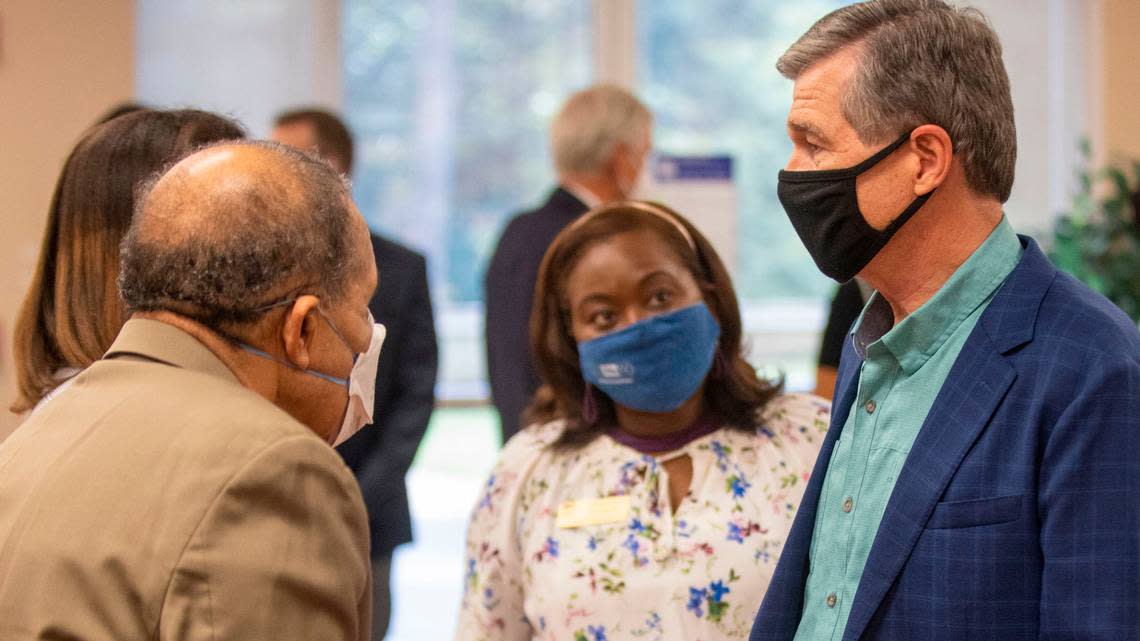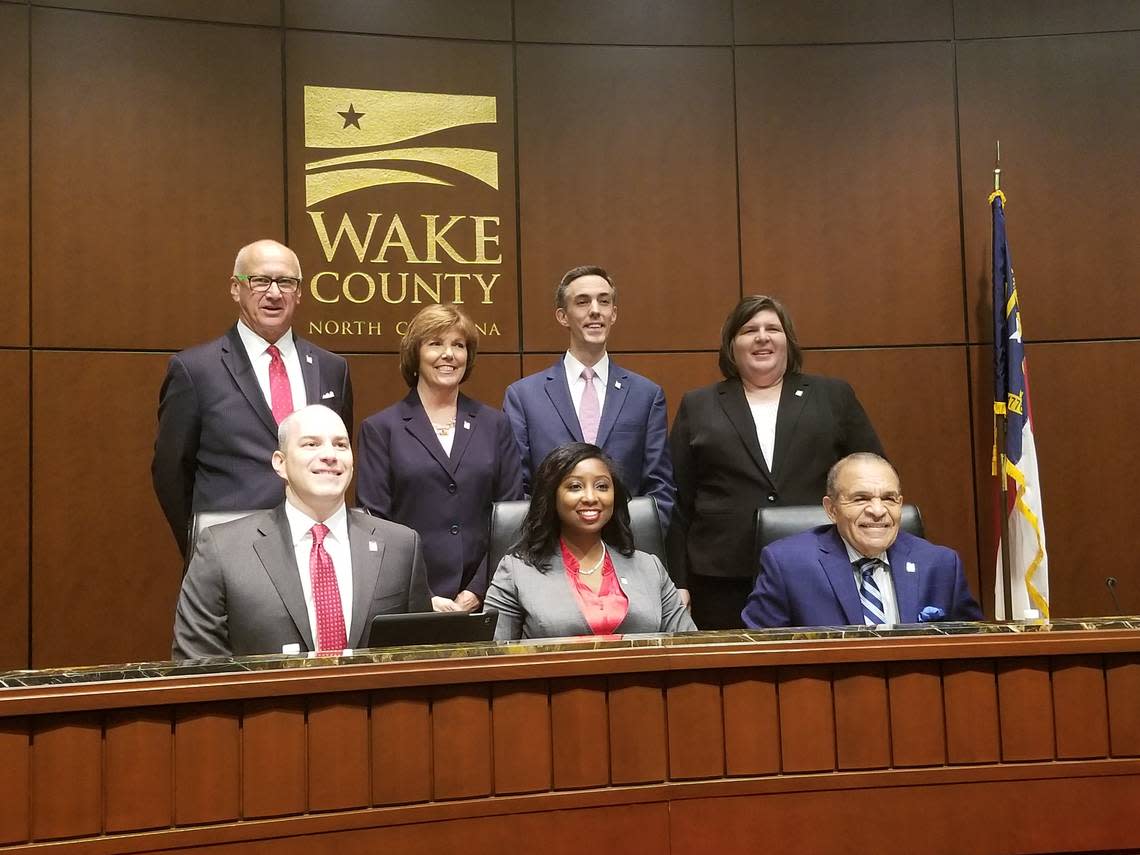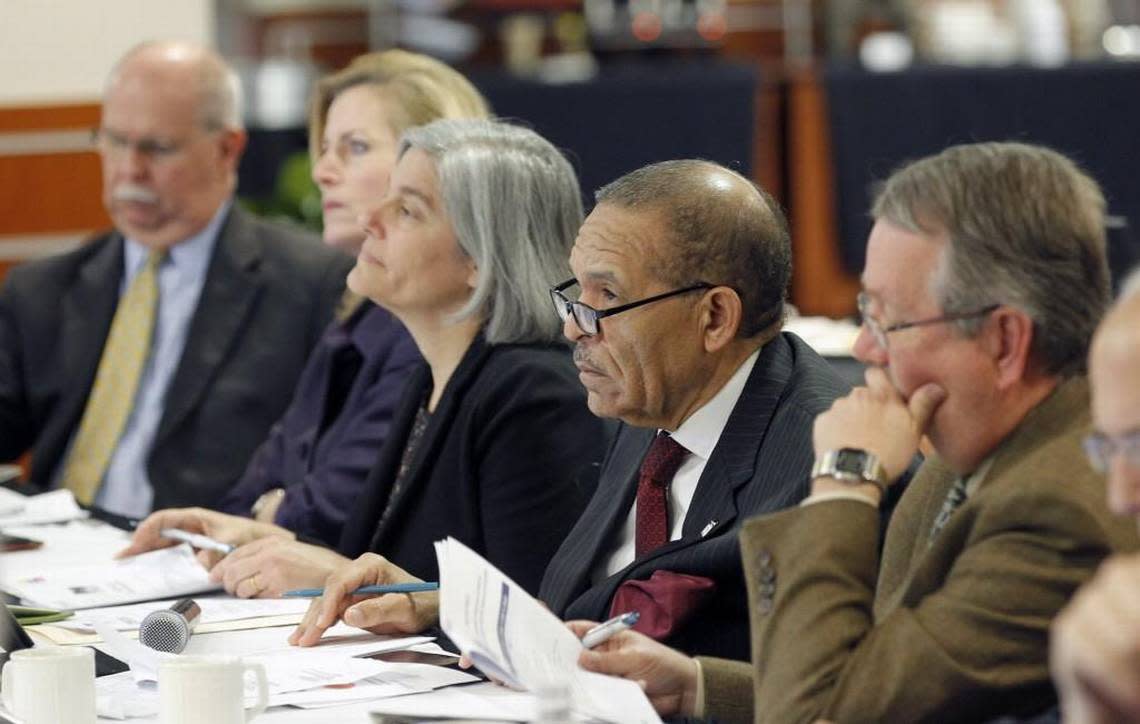Wake County Commissioner and former Raleigh council member James West dies
Wake County Commissioner James West, a champion for Southeast Raleigh who served nearly 25 years in Wake County and Raleigh city governments, died Saturday after a sudden brain hemorrhage the day before, his family said.
He was 79.
The news of his death drew tributes from leaders for a man who spent his life fighting to improve the lives of others, from protesting a racially segregated movie theater in Greensboro while a college student to a recently launched project in his commissioner’s role to identify social factors that affect county residents’ health.
“He was just a pillar of the community,” said Shinica Thomas, chair of the Wake County Board of Commissioners. “He’s worked so hard for vulnerable populations and community engagement, making sure everyone had a voice.”
A professor emeritus at N.C. State University, West was appointed a county commissioner in 2010 and held on to the seat for the next four elections. His seat would have been up for election next year.
“Dr. West’s commitment to public service and dedication to our community have left an indelible mark on Wake County,” Wake County spokeswoman Alice Avery said in a news release Sunday. “Our thoughts are with his family, friends and the many residents whose lives he’s touched.”

West was a Raleigh City Council member from 1999 to 2010, and served as mayor pro tem from 2003 to 2010.
“He was a kind and thoughtful individual who got a great deal done for our city,” said former Mayor Charles Meeker, who served with West for much of his time on the council.
West grew up in the Jim Crow era, on a tobacco and hog farm in Sampson County, the son of William Thaddeus West and Vivian Odell West. They named him after his grandfather.
He attended a racially segregated school in the county before enrolling in the historically Black N.C. Agricultural and Technical College in Greensboro. He graduated with a bachelor of science degree in agricultural engineering in 1964.
As a student, West joined the Civil Rights Movement at N.C. A&T that had begun in 1960 with the seminal sit-in protest at the Woolworth lunch counter in Greensboro. In 1963 West took part in protests at a movie theater in Greensboro that had a whites’ only section, said his daughter, Kimberly West-Faulcon, a constitutional law professor at Loyola Law School in Los Angeles.
After graduation, West began working for the N.C. Agricultural Extension Service as an assistant agent. He met his first wife, Arnetha Martin West, while visiting her parents’ dairy farm in Wayne County. They married in 1966 during his service in the U.S. Army Reserves.
In 1970, the couple moved to Southeast Raleigh, where they raised their daughter and son, James P. West III of Raleigh. Arnetha Martin West was 63 when she died of leukemia in 2007.
West rose through the ranks of the extension service while earning his master’s and doctorate from N.C. State, and became the first Black person promoted to state director of county operations. During much of his time with the service, West was a plaintiff in a landmark racial discrimination case, Bazemore v. Friday, over the lesser pay, assignments and promotions that Black people received.
His daughter said West could have walked away from the case, given his success at the service, but that wasn’t in his character.
“He was the kind of person that if he has to choose a side, he’s always going to choose the underdog,” said West-Faulcon. “He’s going to stand with the oppressed.”
In 1986, the U.S. Supreme Court ruled in favor of the plaintiffs, accepting research findings that had identified the discrimination, and creating a path for similar cases.
Service on Raleigh City Council
West retired early from the extension service in 1995. After serving on Raleigh’s Board of Adjustment, he won election to District C representing Southeast Raleigh.
As a Raleigh councilman, West threw himself into the job, said Octavia Rainey, a longtime community activist. He started the Southeast Raleigh Assembly in 2001, which had 12 committees focused on different aspects of economic development such as education, infrastructure, housing and parks, she said.
The goal was to lift up Southeast Raleigh without displacing the many minority residents who lived there.

“He put his all into Southeast Raleigh, in that plan, and with the Southeast Raleigh Assembly he had over 100 people serving on it,” she said.
Rainey said when crime ticked up in the area, West worked with then Police Chief Harry Dolan to identify and tackle root causes. He helped set up a conference with youth to identify their needs.
As a county commissioner, West took a lead role in getting to the bottom of glitches when a new electronic benefit system rolled out in 2012 that delayed food aid for of several weeks for low income families.

“Dr. West reminded me of fighting for rights like Dr. Martin Luther King did,” Rainey said. “He stood on his principles. He was a great man.”
West was a deacon at Martin Street Baptist Church in Raleigh, where he was a member for more than five decades. He served on roughly a dozen public service organizations, including as a charter member of the Wake County Voter Education Coalition.
While his death came as a shock, his family was able to gather around him at WakeMed Hospital on Saturday afternoon as he passed, his daughter said.
West is also survived by his second wife, Sylvia Clifton, whom he married in 2011; two sisters, Vivian Bennett of Dunn and Willie Harrington of Raleigh; son-in-law, Kent Faulcon, and daughter-in-law, Mia West; and four grandchildren, Keenan West, Dylan Faulcon, Brooke Faulcon and Alana West.
Wake County commissioners fight back tears
A bouquet of flowers sat in front of West’s seat in the Wake County Board of Commissioners chambers Monday afternoon. Each commissioner fought back tears as he or she told stories of West and his service to the county.
“This is really hard not only for us as a county, for us as a board, but also for us as a community (because) he gave so much,” said Commissioner Donald Mial. “It’s hard for me to talk about him as a past tense.”
Commissioner Cheryl Stallings said West was one of the first people to call with condolences when she lost her brother due to an illness a week ago.
“He was praying that God would keep me in his hands, and obviously, I’m praying that God is keeping him and his family in God’s hands,” she said. “I will miss him terribly, but I trust that his legacy will go on.”
Thomas made a motion for all flags in Wake County to be lowered to half-staff to honor West. She read a resolution to commemorate him, saying he spent a lifetime “serving the least of these.”
“I hope that this community will allow this board, and this staff, and this county our time to mourn,” she said.
Monday afternoon, Gov. Roy Cooper tweeted West’s “service made a real difference in the lives of people he represented.”
“I always appreciated his caring, friendly smile,” Cooper wrote.
What’s next
West was a registered Democrat. That means state law requires the Wake County Democratic Party’s Executive Committee to make a nomination to fill his seat. The Wake County commissioners will then vote on the nomination.

The party’s executive committee will select a nominee in December or early January, said Kate Bixler, third vice chair of the party.
The filing period to run for the next four-year term opens Dec. 4.
